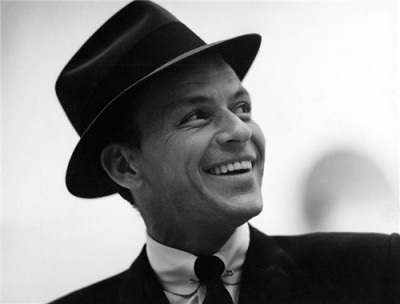 Most people would agree that Frank Sinatra had a wonderful voice. Think of ‘Strangers in the Night ‘ with its lush romance or ‘New York, New York!’ – so full of life. He was stylish and popular for at least five decades. But would you want him as a friend? Or could you see him as a hero? Continue reading
Most people would agree that Frank Sinatra had a wonderful voice. Think of ‘Strangers in the Night ‘ with its lush romance or ‘New York, New York!’ – so full of life. He was stylish and popular for at least five decades. But would you want him as a friend? Or could you see him as a hero? Continue reading
Tag Archives: Susan Hill
Confused of Sussex
I cannot define ‘literary fiction’ but I know it when I read it.
I love ghost stories ( as anyone who reads my Wedding Ghost blog will attest) . I read a lot of them and at the moment I am enjoying the Virago Book of Ghost Stories. It’s fascinating to read women writers that I might not have expected having a go at the genre: how about Stella Gibbons with a strange Cornish story ‘The Roaring Tower’ and Mrs Gaskell’s first person ‘The Old Nurse’s Tale’ ? Both disturbing and memorable in their own way, they have a strong forward momentum that draws the reader on.
A different sort is Edith Wharton’s ‘The Eyes’ . This story only makes sense at the end, and demonstrates a more subtle psychological approach than many others. Yet still there is an inherent drive for the reader to know more. There is a plot.
‘The Happy Autumn Fields’ by Elizabeth Bowen is another story in the collection. She is a much admired writer and this piece was full of beautiful language. It suggested this and implied that and hinted at another thing. The point of view shifted between heaven knows how many people. It was all awfully clever, terribly literary – and it annoyed me no end. It annoyed me almost as much as Henry James’ ‘What Maisie Knew’ ( one of the very few books I have actually flung across the room).
For me this sort of writing has a shifting sense of implication – and if you don’t get it, if you don’t appreciate the the oh-so-subtle references and sub-texts; well, you’re ignorant. I will cheerfully admit that sort of tone has a similar effect on me as The Oxford Voice on D. H. Lawrence.
Yet part of me, the part that went to Wakefield Endowed High School for Girls and took ‘S’ Level English Literature and actually read ‘To The Lighthouse’, feels I ought to value it. I ought to find ‘literary fiction’ somehow better and I ought to aspire to writing such quality work.
Why?
That’s where I am truly puzzled. But my one consolation is that there is a far bigger audience for more populist fiction ( which one is encouraged to sneer at) than there is for the clever stuff.
Where do you stand on this continuum?
It’s not enough.
‘S/he writes beautifully.’ So do a lot of them. It isn’t enough.
This tweet by Susan Hill ( a writer I much admire ) gave me to thinking. If beautiful writing isn’t enough – what is?
The loveliness of prose lies in its ability to create atmosphere: the use of music in film would be a suitable analogy. But we have all suffered tedious documentaries where the producers have sought to ‘sex it up’ with inappropriate music and it just doesn’t work. A particular hate of mine is the misuse of orchestral music -in particular Górecki’s haunting and poignant Symphony of Sorrowful Songs – for banal purposes. It is like writing writing the story of Humpty Dumpty to the tune of the Death of Boromir: you are creating the literary equivalent of a round in ‘I’m sorry I haven’t a Clue’.
At their best, both music and prose directly convey emotion with integrity.
Writers generally hope the reader will make an emotional connection with their characters. Is the portrayal of character the essential element? Perhaps not. The hero in The Day of the Jackal has no name and Frederick Forsyth famously asserts that in his books the plot is 80%, leaving the remaining 20% for character, description and dialogue combined. He cheerfully claims, ‘It is all I can do,’ but it seems to be popular.
Not that popularity is all – Captain Jack Sparrow is a wonderful character full of contradictions and surprising subtlety of portrayal – but he’s not enough to carry the whole Pirates of the Caribbean franchise. A story, written or filmed, is more than the protagonist – things must happen.
This leads me back to plot – but if this is not to be a biography, a list of things that they did, then it must have structure. Books worth reading reveal events little-by-little. They often have sub-plots which culminate satisfactorily at the end, and suggest all manner of things running under the surface of the central drama.Yet this too is not enough.
An essential element, perhaps the quintessence as the alchemists had it, is the voice. Ella Fitzgerald sang, ”T’aint what you do it’s the way that you do it,’ and demonstrated that wonderfully throughout her career. For me the voice is the spirit of the piece, some aspect of the author that permeates the whole creation. And I am still struggling to find mine.
Which leads me to ask you, dear reader, what must I grasp so that my writing is good enough?
Seven things in Seven Weeks
1. Coffee is necessary – or any substance that keeps me attentive enough to learn about semiotics, transitions and why the passive voice is A Bad Thing.
2. Sleep is not as necessary as I thought. Sheer delight and interest in this writing lark can keep you going – though sometimes it’s down to dogged persistence. (Why do I have images of the Fellowship leaping from falling pillar to falling pillar in Moria in Peter Jackson’s film of ‘The Lord of the Rings’ playing in my head as I write this?)
3. Everything that tells a story is worth thinking about – Foyle’s War, the songs of Noel Coward and Tom Lehrer, the opening of the children’s film ‘Robots’, even the Archers. It’s got to the point where I watch an advert and think, ‘Well they don’t waste their time on flashbacks and psychonarration much, do they?’
4. Many creative people are really generous – with their time, their knowledge and their encouragement. It’s amazing how supportive people can be: quotations to help my academic work from Bel Mooney and Susan Hill; lifts from Greg Mosse, Jean Levy and Kerry Edwards – and so many people at West Dean College who have taken an interest. The other writers on my course are a great bunch who put up with my interruptions, stupid questions and me bombarding them with half-formed piffle to read with good grace. Thanks Abla, Anita, Carol, Dana, Davy, Helen,Kerry , Jean, Joe, John, Lucy, Olivia, Susie and Suzanne .
5. Weird has its place in the scheme of things – I don’t feel quite so out of place in a setting where making giant apples out of willow is encouraged, where the Principal Rob Pulley scoots round on the wheelie chairs with as much enthusiasm as the rest of us in our long gallery and where 20’s Surrealism is a frontrunner for the Christmas Party theme.
6. Being properly edited hurts – but it does you a power of good; which does make it sound rather like having your tonsils and adenoids out, admittedly. As yet I haven’t much idea of how my work is likely to be perceived by a reader, so seeing the error of my ways (useless gerunds, non sequiturs and editorialising) has been a salutary experience. Bring it on!
7. Writing well is a really emotional business – and the community at WDC is such a blessing. You would be amazed how a little wave from Kate Mosse, or a kind enquiry from Roger Bown, or a smile from Stephen & Martin the Security men can make such a difference.




